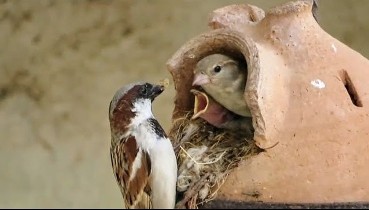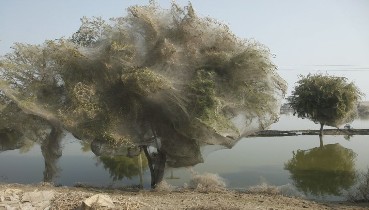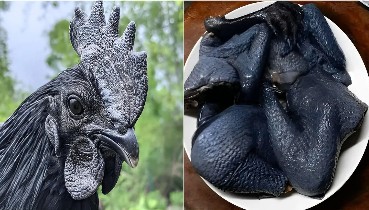
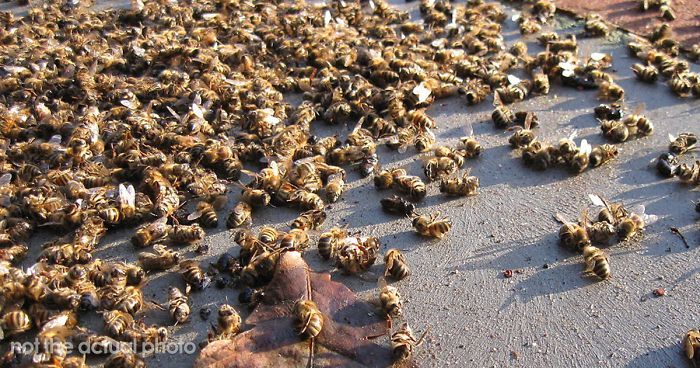
500 Million Bees Have Died In Brazil Just Within 3 Months And The Future Of Our Food Is In Question

How many days can you live without foods? Well, if you have water to drink, you would last for two or three days. We all need food to survive but the future of our food production is in danger with the huge drop out of bee population. Bees are playing a vital role in the pollination and according to the United Nations Food and Agricultural Organization (FAQ), bees are responsible for pollinating 75% of the world’s crops. So, you can understand the consequences of their deaths to the ecosystem.
It is reported that within 3 months, there were over 500 million deaths of bees in Brazil. They were found dead by beekeepers in four Brazilian states, 400 million in the Rio Grande do Sul, 7 million in Sao Paulo, 50 million in Sana Catarina and 45 million in Mato Grosso do Sul.

Aldo Machado, the vice president of Brazil’s the Rio Grande do Sul beekeeping association told that within 48 hours, tens of thousands of honey bees in his colony died after falling sick.

“as soon as the healthy bees began clearing the dying bees out of the hives, they became contaminated. They started dying en masse”

Many researchers suspect that this is the result of the use of pesticides.. since January, Brazil has approved almost 300 new pesticides and this increased usage has a direct effect on the declination of the bee population. Some investigators could even find pesticide traces such as fipronil in some of the dead bees. The insecticide is commonly used to get rid of fleas and ticks.

Alberto Bastos, the president of the apiculturist association of Brazil’s Federal District told that “The death of all these bees is a sign that we are being poisoned”.

So, we will soon face a tragic death either because of the harm that we are causing to nature or because of consuming products that we have poisoned by ourselves!

Image credits: scrural.sc.gov.br
Recommended Videos
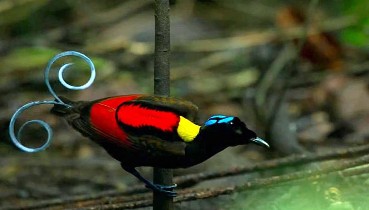 Most Colorful Birds on the Planet (And Where to Find Them)5594 views
Most Colorful Birds on the Planet (And Where to Find Them)5594 views Photograper Captures A Once-In-A-Lifetime Shot Of A ‘Horizontal Rainbow’ That Filled The Whole Sky89 views
Photograper Captures A Once-In-A-Lifetime Shot Of A ‘Horizontal Rainbow’ That Filled The Whole Sky89 views-
Advertisements
 80 Interesting And Cool History Photos30 views
80 Interesting And Cool History Photos30 views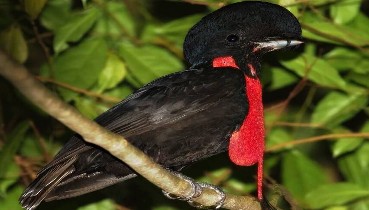 The bare-necked umbrellabird (Cephalopterus glabricollis) is a species of bird in the family Cotingidae.570 views
The bare-necked umbrellabird (Cephalopterus glabricollis) is a species of bird in the family Cotingidae.570 views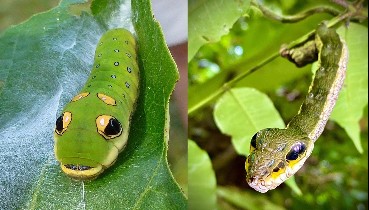 8 Spectacular Caterpillars That Look Like Snakes175 views
8 Spectacular Caterpillars That Look Like Snakes175 views Meet The Dumbo Octopus That Navigates The Deep Sea With Its Elephant-Ear Fins49 views
Meet The Dumbo Octopus That Navigates The Deep Sea With Its Elephant-Ear Fins49 views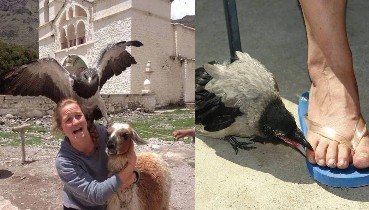 90 Of The Funniest Animal Photobombs Ever9998 views
90 Of The Funniest Animal Photobombs Ever9998 views Meet The Quetzalcoatlus, The Giraffe-Sized Pterosaur That Was The Largest Flying Dinosaur To Ever Live1813 views
Meet The Quetzalcoatlus, The Giraffe-Sized Pterosaur That Was The Largest Flying Dinosaur To Ever Live1813 views
